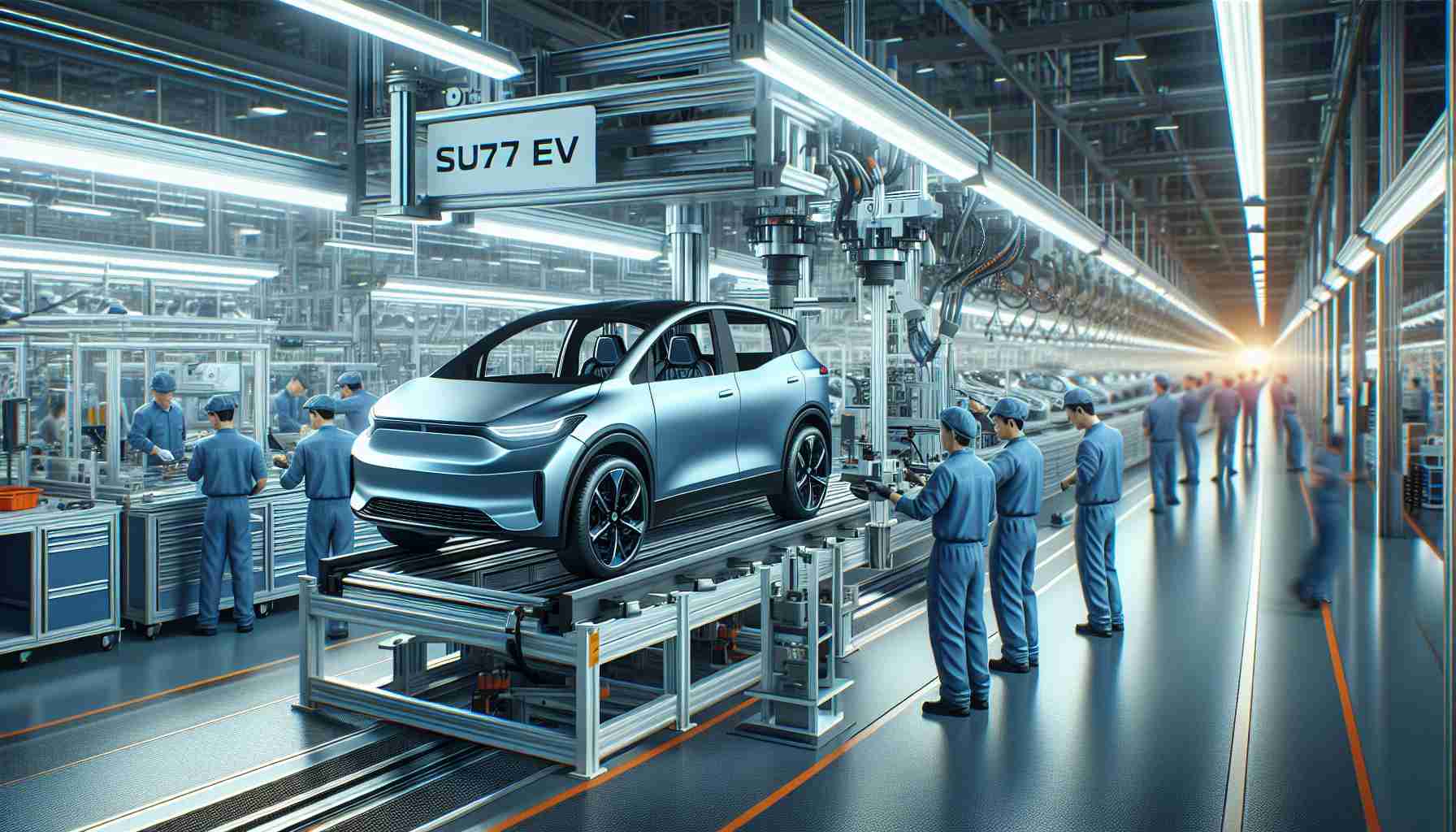Xiaomi, a powerhouse in technology, has encountered both opportunities and obstacles as they break into the electric vehicle sector. Their inaugural offering, the electric SU7 sedan, has seen demand skyrocket, leading to substantial production pressures.
As supply chain insiders shared with Wallstreetcn, Xiaomi’s EV division is currently on the hunt for additional components to support their burgeoning order book, which has swelled by an 80% increase from some suppliers. In specific parts categories, the order volume has nearly doubled from 10,000 to 18,000 units monthly.
The introduction of the SU7 in March, featuring a blend of artful design, advanced functionality, and an enticing sub-$30,000 price point, rapidly won over consumers. Limited models were swiftly snapped up, culminating in pre-orders eclipsing 88,000 units by the end of April.
Prospective buyers of the SU7 are contending with extended waiting periods, spanning a minimum of 30 weeks, worsening to 37 weeks for premium versions. In response to customer concerns, Xiaomi is working diligently to elevate monthly production numbers beyond 10,000 units by the summer.
Xiaomi’s CEO, Lei Jun, openly addressed the delivery delays on Weibo, advising eager customers to consider alternative electric vehicles, including those by ZhiJie, Nio, and Xpeng. Interestingly, he refrained from suggesting the reengineered Tesla Model 3, a vehicle Xiaomi previously used as a benchmark for the SU7 – a notable omission considering the competitive history between the brands.
The electric vehicle (EV) industry is expanding rapidly, and Xiaomi’s recent foray into it with the SU7 EV is a significant step for the tech giant. The EV market has been distinguished by the presence of dedicated automotive companies like Tesla, Nio, and Xpeng, and now, with technology firms like Xiaomi joining the fray, the landscape is evolving further. Xiaomi is known for its wide range of consumer electronics and entering the EV market represents a major diversification of its business model.
Key Questions and Answers:
1. Why is Xiaomi expanding into the electric vehicle market?
Xiaomi is expanding into the electric vehicle market to diversify its product range and capitalize on the growing demand for sustainable transportation options. Given the company’s expertise in technology and electronics, it is a natural progression to apply this knowledge to EVs.
2. What has Xiaomi done to respond to the increased demand for the SU7?
To respond to the increased demand for the SU7, Xiaomi is actively seeking additional components from suppliers and aiming to ramp up production to over 10,000 units per month by the summer.
3. How has the CEO of Xiaomi addressed the delivery delays for the SU7?
Xiaomi’s CEO, Lei Jun, has addressed the delivery delays by communicating directly with customers on Weibo. He has suggested that customers look at alternative electric vehicles from companies such as ZhiJie, Nio, and Xpeng.
Key Challenges and Controversies:
A significant challenge for Xiaomi will be ensuring that its supply chain can meet the soaring demand without compromising on quality. Additionally, as a newcomer in the automotive industry, Xiaomi must prove its reliability and performance standards to consumers who are already familiar with more established EV brands. The company will also need to navigate global supply chain issues, including shortages of semiconductors and other key components that have been affecting the automotive industry.
The omission of Tesla’s reengineered Model 3 from Xiaomi’s CEO’s recommendations may indicate a strategic choice to highlight emerging Chinese EV brands over the American competitor, which could be seen as a controversial or competitive move.
Advantages and Disadvantages:
Advantages:
– Diversification into new sectors could open up additional revenue streams for Xiaomi.
– Xiaomi’s consumer electronics expertise may provide a competitive edge in developing advanced vehicle technologies.
– The aggressive pricing strategy of the SU7 could make it more accessible to a wider customer base.
Disadvantages:
– Lacking experience in automobile manufacturing may lead to challenges in quality control and vehicle safety.
– Xiaomi may face intense competition from established automotive brands with loyal customer bases.
– Production ramp-up procedures could lead to logistical and operational difficulties.
For related insights and further information about Xiaomi’s diverse range of offerings, you could visit Xiaomi’s official website at mi.com. Please ensure that you verify any links provided, as links must be 100% valid and lead to the appropriate main domain with no subpages included.
The source of the article is from the blog enp.gr
